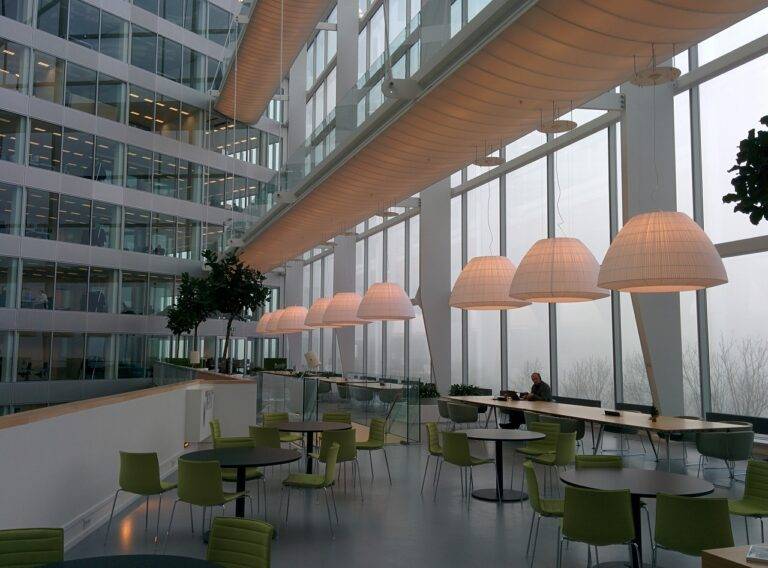Exploring the Potential of Energy-Efficient HVAC Systems for Residential and Commercial Buildings
11xplay reddy login id and password, king567 signup, skyinplay exchange: Exploring the Potential of Energy-Efficient HVAC Systems for Residential and Commercial Buildings
In today’s world, energy efficiency has become a crucial aspect of building design and construction. With concerns about climate change and rising energy costs, property owners and managers are increasingly looking for ways to reduce their energy consumption and carbon footprint. One area where significant improvements can be made is in the heating, ventilation, and air conditioning (HVAC) systems of residential and commercial buildings. Energy-efficient HVAC systems can not only help reduce energy bills but also improve indoor air quality and comfort levels. In this article, we will explore the potential of energy-efficient HVAC systems for both residential and commercial buildings.
What are Energy-Efficient HVAC Systems?
Energy-efficient HVAC systems are designed to provide heating, cooling, and ventilation while minimizing energy consumption. These systems are typically more advanced than traditional HVAC systems and incorporate technologies such as variable speed motors, programmable thermostats, and energy recovery ventilation. By using these technologies, energy-efficient HVAC systems can deliver the same level of comfort as traditional systems while using less energy.
Benefits of Energy-Efficient HVAC Systems
There are several benefits to using energy-efficient HVAC systems in residential and commercial buildings. Some of the key advantages include:
1. Lower Energy Bills: Energy-efficient HVAC systems consume less energy, which can result in lower utility bills for property owners and tenants.
2. Improved Indoor Air Quality: Energy-efficient HVAC systems often include features such as air filtration and ventilation systems that can improve indoor air quality by removing pollutants and allergens.
3. Increased Comfort: Energy-efficient HVAC systems can provide more consistent temperature control and better humidity levels, leading to increased comfort for building occupants.
4. Reduced Carbon Footprint: By using less energy, energy-efficient HVAC systems help reduce carbon emissions and mitigate the impact of buildings on the environment.
Types of Energy-Efficient HVAC Systems
There are several types of energy-efficient HVAC systems available for residential and commercial buildings. Some of the most common options include:
1. Variable Refrigerant Flow (VRF) Systems: VRF systems use variable-speed compressors to deliver precise amounts of refrigerant to individual zones, allowing for greater control and energy efficiency.
2. Geothermal Heat Pumps: Geothermal heat pumps use the earth’s natural heat to provide heating and cooling, resulting in significant energy savings compared to traditional HVAC systems.
3. High-Efficiency Furnaces and Air Conditioners: Upgrading to high-efficiency furnaces and air conditioners can help reduce energy consumption and improve comfort levels in buildings.
4. Energy Recovery Ventilation Systems: Energy recovery ventilation systems capture and transfer heat and moisture from outgoing air to incoming air, reducing the energy needed to heat or cool fresh air.
Tips for Improving Energy Efficiency in HVAC Systems
In addition to investing in energy-efficient HVAC systems, there are several other steps that property owners and managers can take to improve energy efficiency in their buildings:
1. Schedule Regular Maintenance: Regular maintenance of HVAC systems can help ensure they are operating at peak efficiency and prevent costly breakdowns.
2. Seal and Insulate Ducts: Properly sealing and insulating ducts can prevent air leaks and improve the efficiency of HVAC systems.
3. Use Programmable Thermostats: Programmable thermostats allow for precise control of heating and cooling schedules, reducing energy waste when buildings are unoccupied.
4. Upgrade to Energy-Efficient Windows and Doors: Upgrading windows and doors with energy-efficient options can help reduce heat loss and gain, improving the overall efficiency of HVAC systems.
5. Consider Solar Power: Utilizing solar panels to generate electricity can help offset the energy consumption of HVAC systems and further reduce energy bills.
Conclusion
Energy-efficient HVAC systems offer significant potential for reducing energy consumption, lowering utility bills, and improving indoor air quality in residential and commercial buildings. By investing in these systems and implementing energy-saving strategies, property owners and managers can make their buildings more sustainable and environmentally friendly. With advancements in technology and a growing focus on sustainability, the future of HVAC systems looks bright.
FAQs
1. Are energy-efficient HVAC systems more expensive to install than traditional systems?
While energy-efficient HVAC systems may have a higher upfront cost, the long-term savings on energy bills typically offset the initial investment. Additionally, there are often incentives and rebates available for installing energy-efficient systems to help reduce costs.
2. How much can I expect to save on energy bills by switching to an energy-efficient HVAC system?
The amount you can save on energy bills by switching to an energy-efficient HVAC system will vary depending on factors such as the size of your building, climate, and energy rates. However, you can typically expect to see savings of 20-30% or more compared to traditional systems.
3. Do energy-efficient HVAC systems require more maintenance than traditional systems?
Energy-efficient HVAC systems generally require the same level of maintenance as traditional systems. However, regular maintenance is critical to ensure that these systems operate at peak efficiency and continue to deliver energy savings.
4. Can energy-efficient HVAC systems be retrofitted into existing buildings?
Yes, energy-efficient HVAC systems can be retrofitted into existing buildings. A professional HVAC contractor can assess your building’s needs and recommend the best system upgrade options to improve energy efficiency.
5. How can I find qualified HVAC contractors to install energy-efficient systems in my building?
When looking for HVAC contractors to install energy-efficient systems, be sure to check their credentials, certifications, and customer reviews. Additionally, ask for references and get multiple quotes to compare pricing and services before making a decision.







